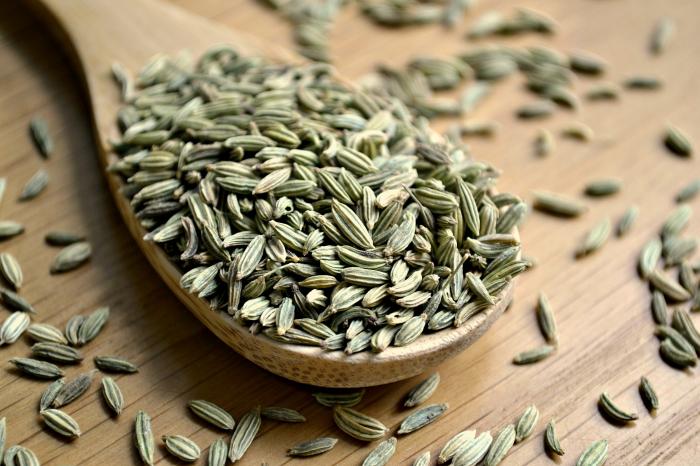Fennel seeds are small, aromatic seeds that come from the fennel plant. They have been used for centuries in cooking and traditional medicine. For breastfeeding mothers, fennel seeds can offer several important benefits. This article will explore the benefits of fennel seeds for breastfeeding mothers and improve the overall experience for mothers and their babies.
What Are Fennel Seeds?
Fennel seeds are derived from the fennel plant, which is native to the Mediterranean region. These seeds have a sweet, licorice-like flavor. They are commonly used in cooking, especially in Indian and Middle Eastern cuisines. Fennel seeds are not just a flavorful addition to dishes; they also possess various health benefits.
Mothers often look for natural remedies to enhance their breastfeeding journey. Fennel seeds are known for their galactagogue properties. This means they can help increase breast milk production.
Increasing Milk Supply
One of the primary benefits of fennel seeds for breastfeeding mothers is their ability to boost milk supply. Fennel contains phytoestrogens, which are plant-based compounds that mimic estrogen in the body. This can stimulate the glands responsible for milk production.
Many mothers report a noticeable increase in milk supply after consuming fennel seeds. When mothers have enough milk, it can lead to a more satisfying feeding experience for their babies.
Nutritional Value of Fennel Seeds
Fennel seeds are packed with essential nutrients. They contain vitamins such as vitamin C, B vitamins, and minerals like calcium, iron, magnesium, and potassium. These nutrients are crucial for both mothers and babies.
When mothers consume nutrient-dense foods, their milk reflects this quality. A well-nourished mother can provide her baby with the vitamins and minerals needed for healthy growth and development.
Improving Digestion
Digestive issues can be common for breastfeeding mothers and their babies. Fennel seeds have carminative properties, which means they can help reduce gas and bloating. This can be particularly beneficial for both mothers and babies who may experience digestive discomfort.
By improving digestion, fennel seeds can help mothers feel more comfortable after meals. They can also assist babies who may be fussy due to gas or colic. Some mothers find that incorporating fennel seeds into their diet leads to happier, more content babies.
Reducing Inflammation
Fennel seeds have anti-inflammatory properties that can be beneficial for postpartum recovery. After childbirth, many women experience inflammation in the body. Consuming fennel seeds may help reduce this inflammation.
By lowering inflammation, fennel can support quicker recovery for mothers. This can make breastfeeding more comfortable and enjoyable. A mother who feels better is more likely to have a positive breastfeeding experience.
Balancing Hormones
Hormonal fluctuations are common during breastfeeding. Fennel seeds can help balance hormones due to their phytoestrogen content. This may help alleviate some common postpartum symptoms, such as mood swings and fatigue.
By supporting hormonal balance, fennel seeds can improve overall well-being. Mothers who feel stable emotionally are often more successful in their breastfeeding journeys.
Enhancing Milk Flavor
Interestingly, fennel seeds may also influence the flavor of breast milk. Some studies suggest that flavors from a mother’s diet can transfer to her milk. This can help introduce babies to different tastes early on.
When babies are exposed to a variety of flavors through breast milk, they may be more open to trying different foods later. Fennel has a pleasant taste that can enhance the overall experience for breastfeeding babies.
How to Use Fennel Seeds
Incorporating fennel seeds into your diet is easy. They can be consumed in various ways. One common method is to brew fennel tea. To make fennel tea, steep one teaspoon of crushed fennel seeds in hot water for about 10 minutes. Strain and enjoy.
Fennel seeds can also be added to cooking. They work well in soups, stews, and stir-fries. You can use whole seeds or grind them into a powder. Adding fennel powder to smoothies or baked goods is another great option.
For those who prefer supplements, fennel seed capsules are available. However, it is important to follow the recommended dosage. Consulting with a healthcare provider before starting any new supplement is advisable.
Potential Side Effects
While fennel seeds have many benefits, they are not without potential side effects. Some mothers may experience allergic reactions or digestive issues, such as heartburn or gas.
It is best to start with a small amount and gradually increase the dosage as needed. Always listen to your body and consult with a healthcare professional if you have any concerns.
See also: What Are The Benefits Of Fenugreek Seeds While Breastfeeding
Conclusion
Fennel seeds offer numerous benefits for breastfeeding mothers. They can help increase milk supply, improve digestion, and provide essential nutrients. By incorporating fennel seeds into their diets, mothers can support their health and enhance their breastfeeding experience.
As with any supplement or food, it is important to consult with a healthcare provider before making changes to your diet. This ensures that fennel is a safe and suitable option for you.
In summary, fennel seeds can play a significant role in a breastfeeding mother’s diet. They can help create a positive breastfeeding experience for both mothers and their babies. With their many health benefits, fennel seeds are a valuable addition to the diet of nursing mothers. By choosing to include them, mothers can feel more confident in their ability to nourish their babies effectively.
Related topics:


